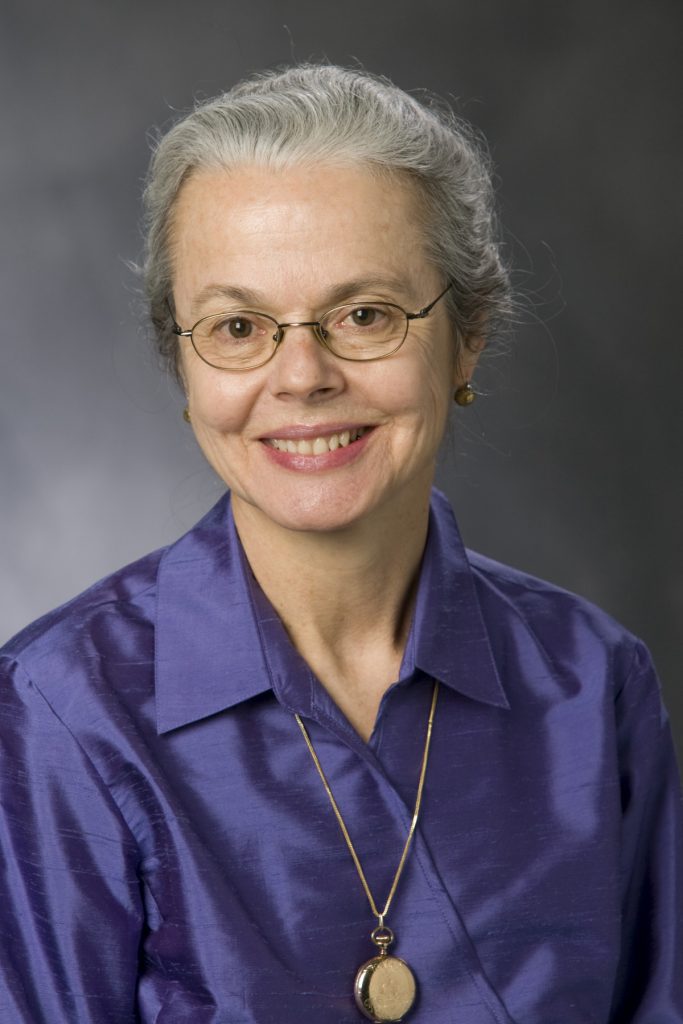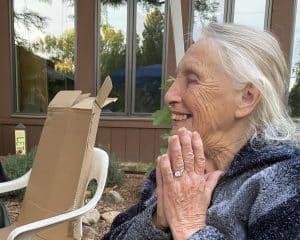
When I entered my PhD in religion program, it was a joy to read articles and books by women scholars grappling with sacred texts and finding ways to relate those texts to contemporary life. One of the most illuminating classes I took was on women in the book of Genesis. We carefully read every single word written about certain women using several translations and online Hebrew Bible tools, discussed the relationships and characterization of these women for hours, and in the end, I took away a real appreciation for how much we can glean from (often) very few verses.
Recently, LDS writer Kurt Manwaring interviewed Ellen F. Davis, Bible and Theology professor at Duke Divinity School. I love her tips for reading the Hebrew Bible and her comments on Ruth, one of my very favorite characters in the Bible. Below is an excerpt of that interview.
Kurt Manwaring: What would you say to encourage someone who wants to study the Old Testament but feels the language, length, and content daunting?
Ellen Davis: Don’t try to read the whole thing at one go!
For obvious reasons, one good place to start is Genesis.
Get one of the brilliant newer translations, such as those by Robert Alter (my teacher) or Everett Fox.
Take it slowly, a chapter at a time. Learning to read slowly is crucial. Don’t read for plot (you know it!); read for character, for relationships. Look for what surprises you when you slow down.
Moving on, you don’t have to read straight through the whole Old Testament/Hebrew Bible, and probably should not do so. If you want to start with a little book, my annotated translation of Ruth, with woodcuts by Margaret Adams Parker (Who Are You, My Daughter?) might be useful.
Kurt Manwaring: You have written about the ways in which suffering uniquely qualifies one to speak of God. Is there an Old Testament figure other than Job to whom you look as an example of coming to know God through suffering and trial? How have you applied the example of this person in your life
Ellen Davis: I have just mentioned Ruth. She herself embodies the three classic biblical categories of the vulnerable person; she is widow, sojourner, and orphan-by-choice, having left her birth family to accompany Naomi to a foreign land, a small rural town (Bethlehem) where a Moabite woman would be viewed with suspicion.
She is a model for me of someone who crosses borders for the sake of life — borders both literal and figurative, as she acts in unconventional and selfless ways to create a new community out of a situation of profound loss.
I don’t know that I have modeled myself after her, but I tell her story and have found that many people, especially my colleagues working in reconciliation work in East Africa, respond strongly to it.
Kurt Manwaring: Have you encountered anything in your academic career that has tried your faith? Should non-academics be afraid of history and theology when it comes to their religious beliefs?
Ellen Davis: No, I have not. On the contrary, an adult lifetime of study, including history and theology, has given substance to my faith.
History helps us to see how these texts have emerged from cultures and situations where we can recognize the basic challenges that the original hearers faced; it should also enable us to see how those cultures differed (greatly) from our own, so we often have to adjust our thinking to comprehend the Bible.
Theology is altogether a matter of learning to think in radically new ways, to see the wider dimensions of reality which we mostly overlook in the press of our daily business — until we suddenly discover our need to think in new ways, to reckon more fully with the “invisible” dimensions of our lives.
Being a professional theologian is an enormous privilege, simply because it challenges me to think daily about what is most essential for a truly human life.





